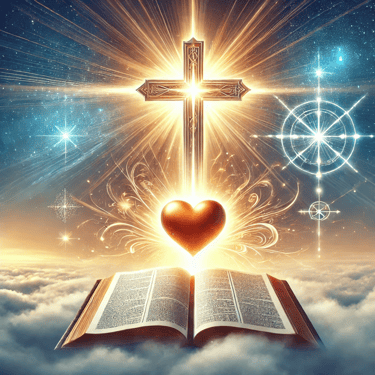The Narrow Path and the Meaning of Resurrection
Paul tells us that resurrection isn’t just about the flesh—it’s about transformation. From perishable to imperishable. From weakness to power. From natural to spiritual.
Alan Dyer
4/20/20252 min read


The Narrow Path and the Meaning of Resurrection
Today is Easter Sunday.
All around the world, Christians gather in churches, homes, and quiet prayer to proclaim one simple truth: He is risen! The resurrection of Jesus stands as the cornerstone of Christian tradition. For many, it’s a day of joy and hope, a celebration of personal salvation and the promise of eternal life.
But today, let’s pause and ask a deeper question.
What does it really mean that Jesus was raised from the dead?
There are some who say Jesus was not crucified. Others say He was crucified but did not rise bodily. Some call it symbolic. Some call it spiritual. And others claim it’s all historical fact. And maybe you’ve asked yourself: Does it matter if it was a physical resurrection? Or is there something more important here we’re supposed to see?
Let’s listen to the Apostle Paul in 1 Corinthians 15:42–44:
“So will it be with the resurrection of the dead. The body that is sown is perishable, it is raised imperishable; it is sown in dishonor, it is raised in glory; it is sown in weakness, it is raised in power; it is sown a natural body, it is raised a spiritual body.”
Paul tells us that resurrection isn’t just about the flesh, it’s about transformation. From perishable to imperishable. From weakness to power. From natural to spiritual.
So what if the most important part of the resurrection isn’t whether Jesus’ body walked out of the tomb, but whether we are walking the path He laid before us?
What Truly Saves Us?
Some say we are saved simply by believing Jesus died and rose again. But Jesus didn’t just come to be believed in, He came to be followed.
“Enter through the narrow gate. For wide is the gate and broad is the road that leads to destruction, and many enter through it. But small is the gate and narrow the road that leads to life, and only a few find it.” – Matthew 7:13–14
The resurrection is a signpost, not a shortcut.
Jesus didn’t rise from the dead so we could skip the hard work of spiritual growth. He rose to show us what’s possible—that we too can rise. That death isn’t the end, but a doorway. That if we live as He taught, showing mercy, forgiving enemies, loving the poor, walking humbly, we too will be transformed.
Not later. Not someday. Now.
The Resurrection of the Spirit
Jesus taught that the Kingdom of God is within us. That we are called to die daily—to die to ego, pride, greed, fear—and to rise each day in love, compassion, truth, and courage. This is the resurrection life. A spiritual rising that changes us from the inside out.
You see, salvation isn’t a transaction. It’s a transformation. We’re not saved because Jesus died and rose, we are saved when we walk the path He walked.
And that path? It’s narrow. Few find it. But when you do, it leads to life.
What Does Easter Mean for Us Today?
It means you can rise.
You can rise from addiction.
You can rise from grief.
You can rise from bitterness, pride, shame, guilt.
You can rise from spiritual death.
The tomb is empty, not so we can sit comfortably, but so we can follow Him out of it.
So today, celebrate the resurrection, but don’t stop at celebration. Let Easter be a turning point. Let it be the day you commit to the narrow path, the path of transformation. Let the resurrection happen in you.
Because that’s where it matters most.
Amen.
© SDBEST LLC, 2025. All rights reserved.
alan@wambology.org
